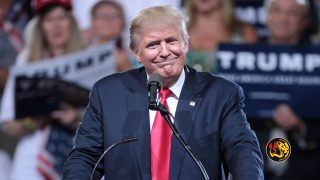
by Worthy News Washington D.C. Bureau Staff
(Worthy News) – President Donald Trump is entering a decisive week in his global trade push, aiming to finalize several long-delayed deals before a major round of tariffs hits dozens of U.S. trading partners. With a 90-day pause on his reciprocal tariff policy set to expire July 9, Trump has vowed to escalate pressure on foreign governments — not just with levies, but with a wave of formal notices set to begin Monday.
Fresh off a series of high-profile victories — including passage of his sweeping tax and domestic policy bill and helping broker a cease-fire between Israel and Iran — Trump is hoping to turn that momentum toward reshaping U.S. trade relationships. However, progress has lagged. Despite initial predictions of “90 deals in 90 days,” only three have been announced so far, many of them lacking public details or clear commitments.
Trump said that instead of waiting on extended negotiations, his administration would begin sending tariff notification letters to countries this week, warning them that duties of up to 70% could begin on August 1 if no agreements are reached. “It’s just much easier,” Trump told reporters. “We have more than 170 countries. How many deals can you make?”
The president also issued a stark warning to countries aligning with BRICS, the emerging economic bloc led by Brazil, Russia, India, China, and South Africa. “Any Country aligning themselves with the Anti-American policies of BRICS will be charged an ADDITIONAL 10% Tariff. There will be no exceptions,” he wrote on Truth Social late Sunday. The post coincided with a BRICS summit in Rio de Janeiro, where the group criticized “unilateral tariff measures” and expanded its network to include new members and partners.
Treasury Secretary Scott Bessent said the letters will serve as a final warning before tariffs revert to the levels originally imposed on April 2. “President Trump is going to say, ‘If you don’t move things along, then on August 1st, you’re back to your April 2nd tariff level,'” Bessent told CNN. He denied the notion of an extended deadline but acknowledged countries still had “a window” to make deals.
Some countries appear to be scrambling to meet that window. The European Union said Monday it was working “at full speed” to finalize a trade agreement before the July 9 expiration. European Commission President Ursula von der Leyen and Trump held a “good exchange” on Sunday, with Commission spokesman Olof Gill confirming that “substantial progress” had been made.
Other deals remain uncertain. Trump claimed last week he had secured a trade pact with Vietnam that would allow all U.S. goods to enter tariff-free, while Vietnamese exports would face a 20% tariff. But Hanoi has not confirmed the agreement, and sources suggest some exemptions are still being negotiated. A similar lack of clarity surrounds a reported deal with China on rare-earth magnets, which U.S. officials now warn Beijing may not be fully honoring.
India, meanwhile, has readied retaliatory tariffs of its own in case talks with Washington collapse. External Affairs Minister Subrahmanyam Jaishankar visited D.C. last week, but Indian officials have also notified the World Trade Organization of plans to raise duties on U.S. goods, citing tariffs imposed by Washington on automobiles.
As of Sunday evening, Trump said up to 15 countries could receive tariff letters starting at noon Monday. National Economic Council director Kevin Hassett confirmed on CBS’s “Face the Nation” that the White House hopes to finalize as many deals as possible in the coming days.
Still, many trading partners remain skeptical. A South African trade official rejected the idea that BRICS members are “anti-American” and said they remain open to negotiation. “Our conversations remain constructive and fruitful,” said South Africa’s Kaamil Alli.
While the administration has reframed the tariff strategy as a means of protecting American industries and correcting trade deficits, critics warn that the lack of transparency and the threat-based posture could trigger a wave of global retaliation and economic uncertainty.
For now, President Trump is betting that bold moves and hard deadlines will yield last-minute results — and that America’s trading partners will blink first.
Copyright 1999-2026 Worthy News. This article was originally published on Worthy News and was reproduced with permission.
Latest News from Worthy News
A Christian pastor detained in Nicaragua since July 2025 has been released from prison but placed under house arrest along with five other Christian believers, Worthy News established on Thursday.
An injured Christian pastor in eastern India says recalling Bible verses gave him strength to survive hours of brutal abuse by a Hindu mob that accused him of converting Hindus to Christianity.
U.S. forces carried out five sets of precision strikes against Islamic State targets across Syria between Jan. 27 and Feb. 2, the U.S. military’s U.S. Central Command announced Wednesday.
U.S. forces carried out five sets of precision strikes against Islamic State targets across Syria between Jan. 27 and Feb. 2, the U.S. military’s U.S. Central Command announced Wednesday.
U.S. Special Envoy Steve Witkoff announced on Feb. 5 that Ukraine and Russia have agreed to exchange 314 prisoners, marking the first such swap in five months and the most tangible outcome yet from U.S.-brokered talks held in Abu Dhabi. The exchange followed multiple days of trilateral negotiations involving delegations from Washington, Kyiv, and Moscow.
The Supreme Court of the United States on Wednesday declined to take up a legal challenge to California’s newly drawn congressional map, allowing the state to proceed with district lines that effectively eliminate five Republican-held U.S. House seats.
President Donald Trump said Thursday that Iran has entered negotiations with the United States because it fears potential military action, as both sides prepare for high-stakes talks expected to take place in Oman. Speaking at the National Prayer Breakfast in Washington, Trump said Tehran “doesn’t want us to hit them,” adding that a U.S. naval fleet is in the region as pressure increases.






